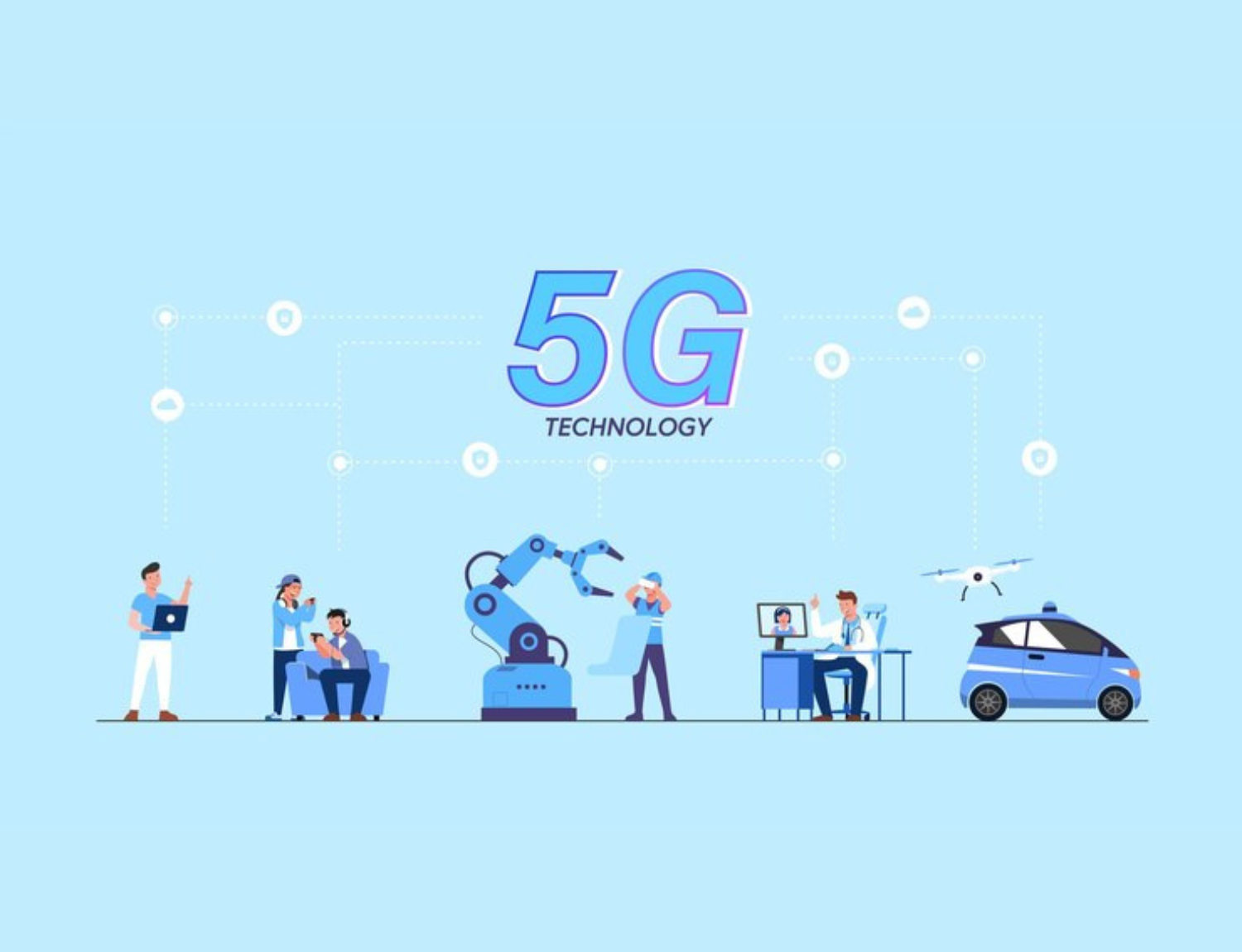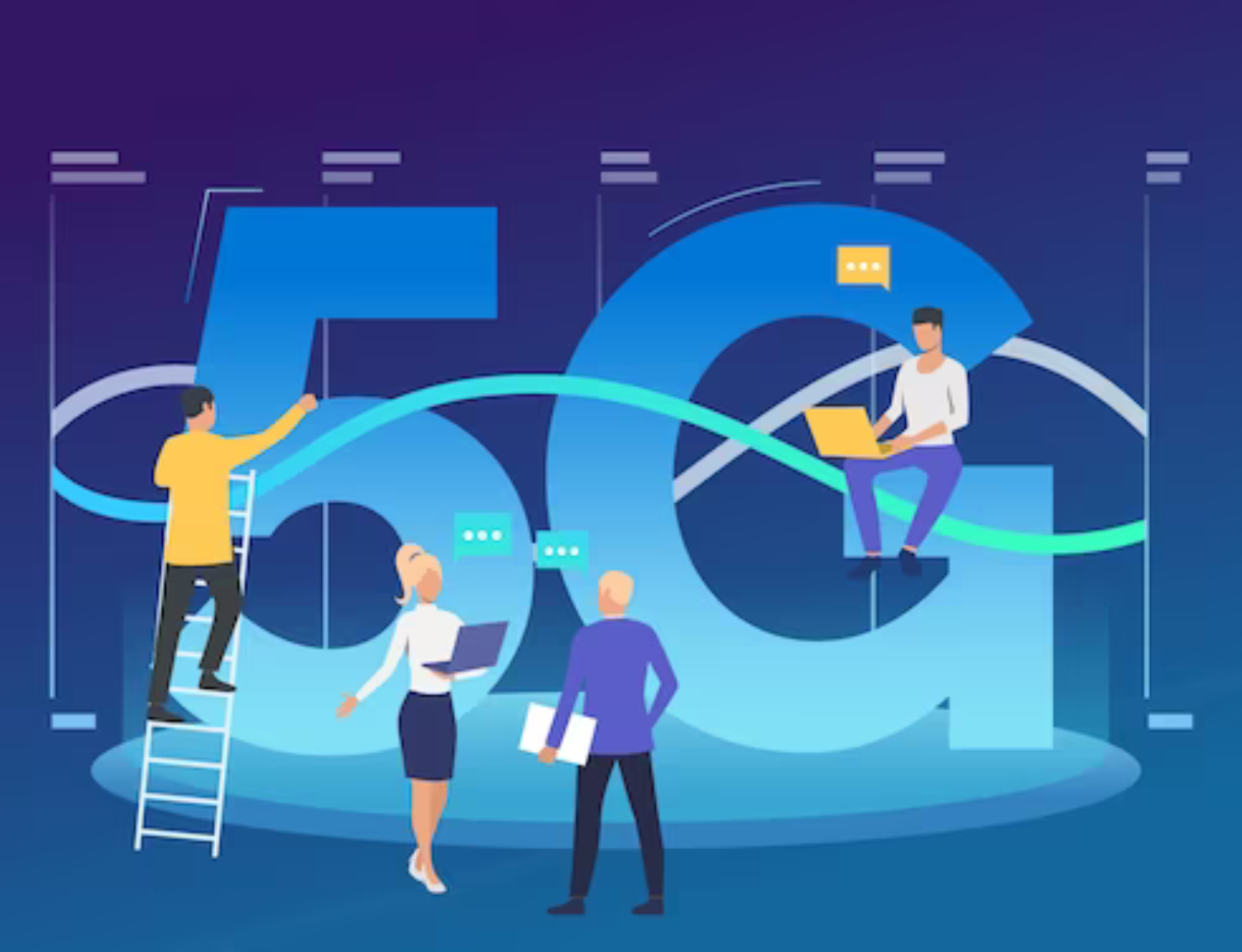Undoubtedly, the roll-out of the 4G connectivity changed the way India connects as well as does business. From e-commerce to online education, it has helped the nation skip barriers such as the cost of having a computer or maintaining the costly broadband internet lines. Moreover, due to affordability, there has been enormous consumption of high-speed 4G data in the past few years. And, with the introduction of the 5G technology, the use of the high-speed internet would be boosted further.

5G and It’s Impact
5G means the 5th generation wireless systems. These wireless networks are expected to provide higher internet speed as well as have the capacity to connect with the billion devices such as household appliances and driverless cars. It is built using 5 technologies i.e small cells, beamforming, massive MIMO (multiple inputs multiple outputs), full-duplex, and millimeter waves. The 5G launch date is not confirmed; however, the process of auctioning the 5G spectrum is initiated in India by TRAI (Telecom regulatory of India).
As per the analyst’s prediction, India would adopt 5G by 2022 completely. It is expected that 5G could provide a download speed of 1GBps. It is worth noting that it is designed purposely so that the key industries could take the cellular connectivity advantage in numerous ways. 5G would influence each industry- be it healthcare, emergency services, autos, education, manufacturing and distribution, and many others. Here is a guide to help you know how 5G benefits different industries
-
Transport and Logistics
The transport’s future begins with driverless cars. And, in the starting days of 5G, the automotive sector is expecting big changes. Be it Apple Inc., Uber Technologies Inc., or any other company, everyone is looking forward to building self-driving cars. However, while the test cars are on the roads in few cities, the commercial introduction of such vehicles, especially large and mobile computers processing massive data in real-time would be next to impossible without high-speed internet.
5G as well as autonomous vehicles promise to transform shipping and logistics. Moreover, the Port of Hamburg has also started installing the sensors on the ships in order to track movement as well as environmental data in real-time, improving the efficiency.
-
Leveled-up Gaming
5G is going to change the game. The strength of the 5G connection would take online gaming to the level that 4G could not reach. Currently, the network allows 100 players to compete at once. However, with 5G the number of the players could increase to around 1000 players too without the requirement for gamers to download any software.
The intersection of AR (augmented reality) as well as 5G could make gaming more than a visual plan. 5G could enable advanced mobile gaming products with real-time capabilities that would transform gaming experiences when combined with VR and AR. Pairing the low latency of 5G with a smartphone’s convenience would make the mobile phone a preferred choice for gaming.
-
Education
Free educational content is available online in huge quantities; however, the issue is that the one who requires this is far from it. Along with affordable 5G phones as well tablets, 5G connectivity might change this. With 5G the access to education would improve drastically. Moreover, 5G could provide better remote-learning opportunities. While keeping the procurement processes restrict investment in technology, it would eradicate the requirement of use of large land as well as construction.
Because of the sheer speed almost 100 times faster than 4G, it would improve the learning through instant interactivity too with less energy consumption. This means that instead of watching videos of teachers, the students in remote areas would be able to attend classes in real-time. The 5G-enabled classrooms might include a holographic tutor who can beam in to lead the discussion on the specialized topics. Continuous virtual reality experiences could help students with varied learning needs.
-
Live Events
From football matches to music festivals, 5G would transform the live events by enhancing the fan experience. 5G provides low latency that allows the use of immersive technologies like 360-degrees, Augmented Reality as well as Virtual Reality to enhance fan engagement.
With millions of smartphone users packed in small sites, the capacity of the network required is more than that of a larger city. This is where 5G can be helpful. At sports as well as music venues, improved data speed and 5G’s capacities would make it easier for fans to get most of the smart stadium apps like live-streamed replays.
-
Smart Cities
5G would shape the future’s smart cities by changing the way you work and live. It would give a backbone for the variety of new connected services like autonomous cars. To cope up with huge data generated as well processed by the independent vehicles, connected city infrastructure would be important.
Moreover, the drivers would have enough time to work as well as relax, while driving new products and services when they become passengers. The advent of 5G could aid the smart transport’s development that would change the way you look at daily commuting. A smart building can aid to provide a contented working environment, reducing costs for employers along with improving productivity.
-
Internet of Things (IoT)
IoT refers to all the devices as well as machines linked through the internet and its massive growth is likely forthcoming as 5G Technology comes. It is expected that around 120 billion devices would be linked by 2030. The leap forward in connectivity would be crucial for spreading machine learning, artificial intelligence, enabling data collection from mobile and remote sensors, and analyzing in real-time. This would drive each thing from autonomous vehicles to smart cities to the home appliances which order groceries.

Apart from these, 5G would aid smarter manufacturing by providing network characteristics required to support critical applications like high reliability and low latency. The 5G technology would allow for lower cost, short lead time, and higher flexibility for layout changes, reconfiguration of factory floor production, and alterations. However, one of the cons of 5G Technology is that it is hard to install as well as deploy. For covering the same area as a 4G network, there would be a need for more transmitters.